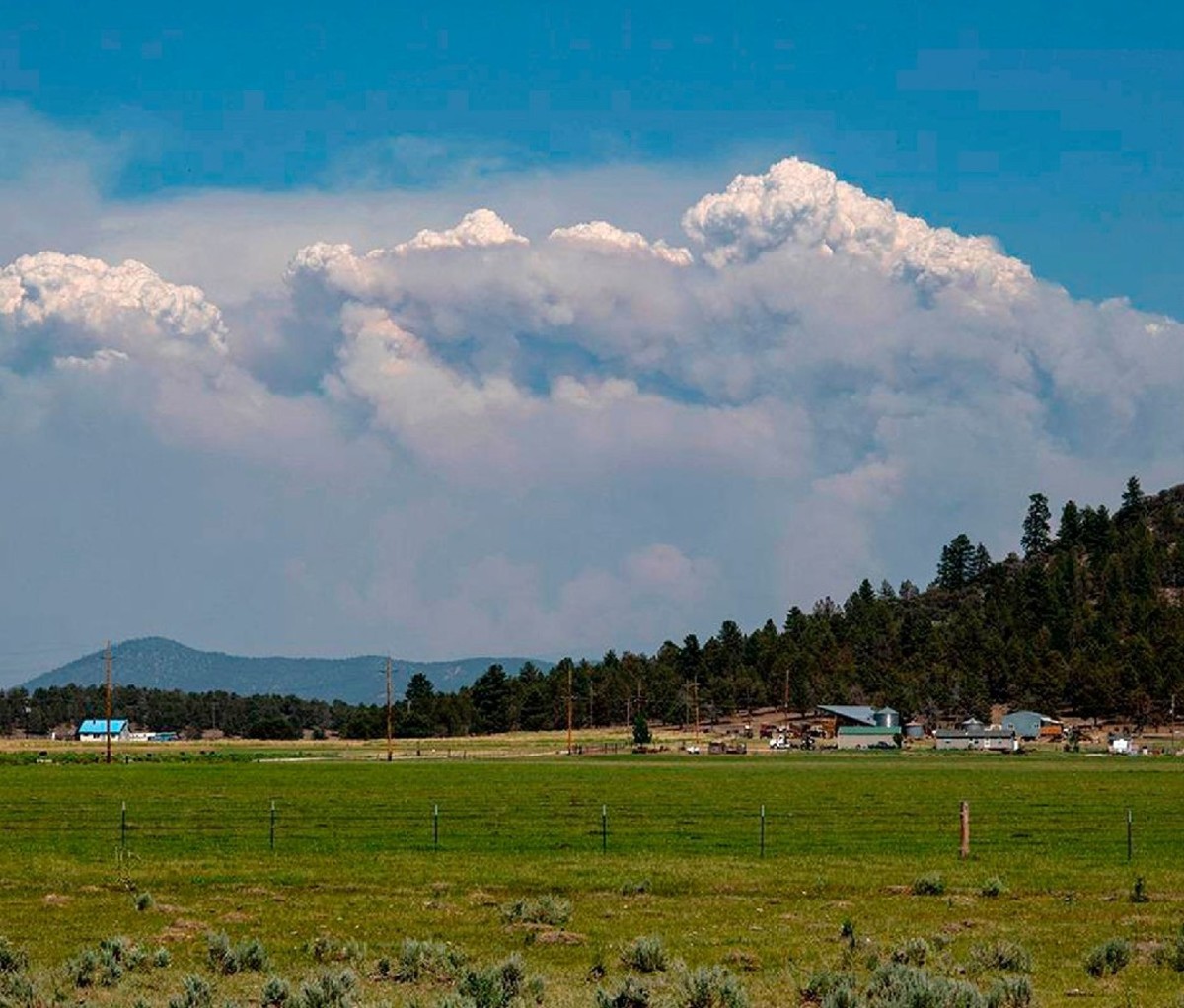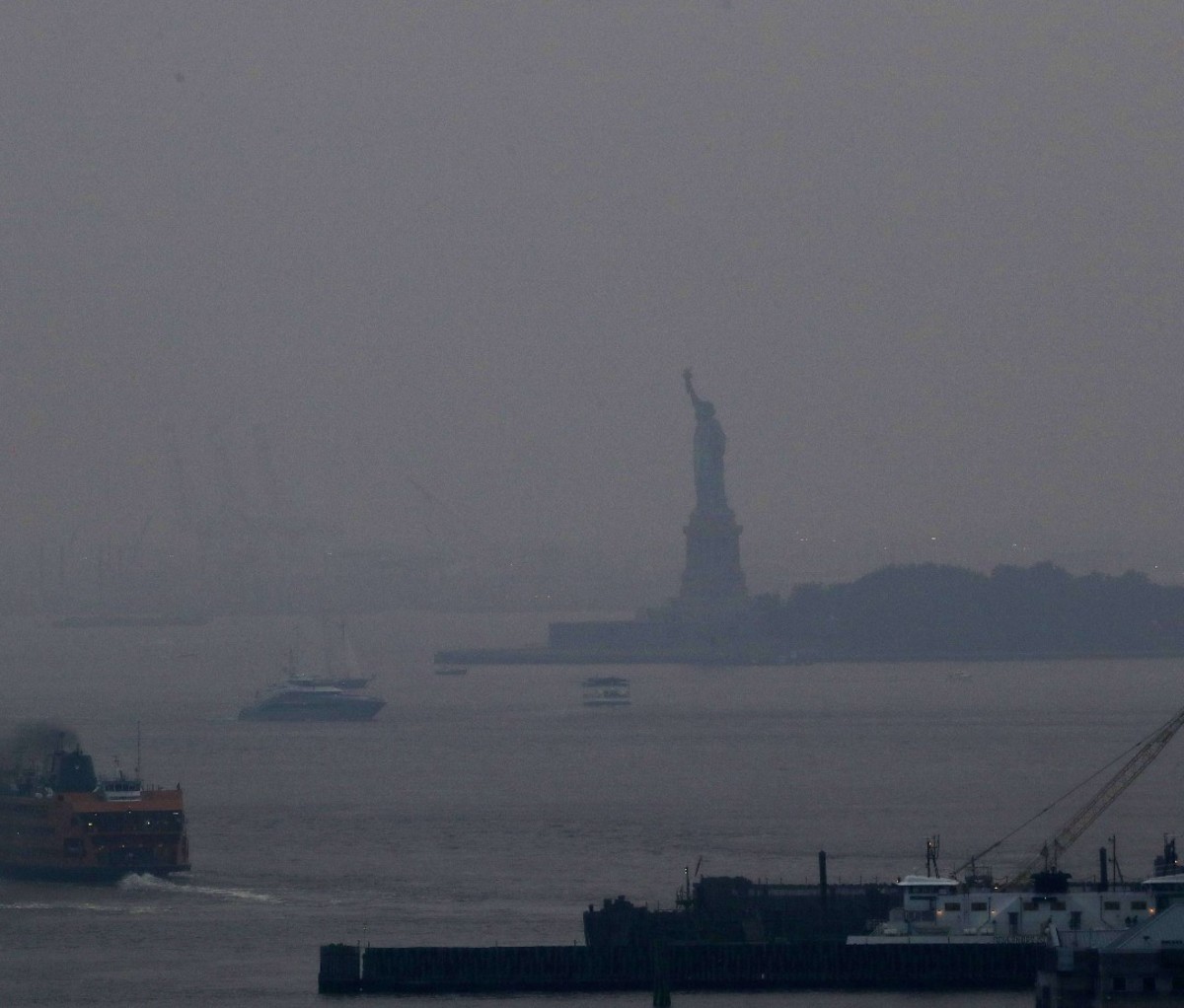Before the 2021 fire season in the western U.S. began, experts knew it was going to be bad. Now, people across the country are seeing just “how bad,” as smoke from the fires has spread all the way to the East Coast. Common wisdom says where there’s smoke, there’s fire. However, in this case, those enormous western wildfires are thousands of miles away.
Fires were expected in many western states due to historically bad drought conditions and record high temperatures. There are 78 active large western wildfires across 13 states, according to the National Interagency Fire Center. In total, more than 1.3 million acres have burned. The agency is predicting above average fire potential for large areas of the West until September.
The Bootleg Fire
Right now, the largest fire burning is southern Oregon’s Bootleg Fire. Started by a lightning strike, the fire is the fourth largest in Oregon history at more than 395,000 acres. In terms of size, that’s an area larger than Los Angeles. Fire crews have had to retreat to safety zones for 11 consecutive days due to the quickly shifting blaze.

The Bootleg Fire is large enough to create its own weather. Pyrocumulus clouds, aka fire clouds, form when heat from wildfires rises rapidly, condensing any moisture. These clouds can then create lightning and high winds, not helpful to crews fighting the fires. At the end of June, pyrocumulus clouds formed by wildfires in British Columbia, Canada, caused more than 700,000 lightning strikes in a single 24-hour period, starting new fires across the province.
In 2020, smoke from wildfires formed a wall across the entire West Coast causing hazy days and apocalyptic-looking red skies. During a period in last September, San Francisco, Seattle, and Portland had some of the worst air quality numbers in the world. This year, smoke is moving eastward across the U.S., especially to the Midwest and Northeast. Today, the Statue of Liberty was shrouded in smoke and New York City is reporting some of its worst air quality in 15 years.

As for the Bootleg Fire, while it’s 30 percent contained, it won’t be extinguished anytime soon. Katy O’Hara, a fire management specialist for the National Park Service, told CNN that due to the size of the fire, the only thing that could extinguish it is the weather.
“The scope and scale of the Bootleg Fire will require a season ending weather event such as a significant storm that is either widespread wetting rain or snow, which in southern Oregon typically occurs in the late fall,” O’Hara said.
Fireproofing for future fire seasons
Interestingly, one section of forest that burned during the Bootleg Fire may help provide answers for fire seasons to come. For a decade, ecologists have been “fireproofing” the 30,000-acre Sycan Marsh Preserve. This meant removing young trees and doing planned burns. So, when the fire reached the preserve, firefighters said that instead of jumping from tree to tree, the fire moved on the ground. Because of this, they were able to better control it and protect portions of the forest. For a region increasingly affected by climate change, this kind of forest management might point the way forward.
from Men's Journal https://ift.tt/3BxDFRc
No comments:
Post a Comment